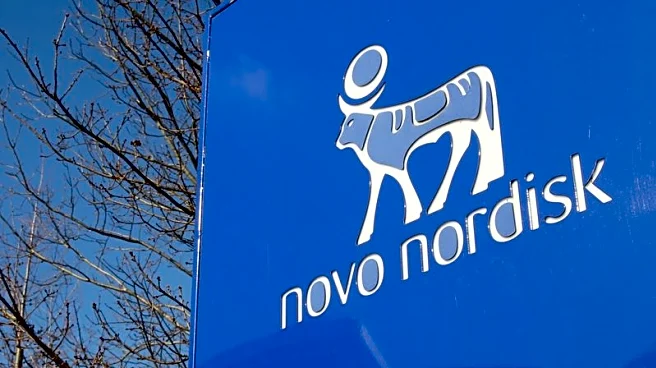COPENHAGEN (Reuters) -Novo Nordisk said on Monday an older oral version of its semaglutide drug failed to meet its main goal in late-stage trials testing whether the medicine can slow cognitive decline
in Alzheimer's patients, sending its share price down 10%.
The setback is a blow to hopes that Alzheimer's could open a major new market for GLP-1 medicines such as semaglutide, as Novo faces rising competition to its blockbuster drugs in its core treatment areas of obesity and diabetes.
Alzheimer's patients currently have limited treatment options. Novo's trial was being closely watched as an indication about whether GLP-1 drugs - used by millions for diabetes and weight loss - might slow disease progress.
The drug tested was Rybelsus, a pill approved only for type 2 diabetes. Like Novo's blockbusters Ozempic and Wegovy, it contains semaglutide.
'LOTTERY TICKET' FAILS TO WIN
The company's Executive Vice President for Product and Portfolio Strategy, Ludovic Helfgott, had described the Alzheimer's trials as a "lottery ticket" in September, a reference to its uncertain prospects yet huge potential.
Alzheimer's disease and other dementias affect more than 55 million people globally. There is no cure.
"While semaglutide did not demonstrate efficacy in slowing the progression of Alzheimer's disease, the extensive body of evidence supporting semaglutide continues to provide benefits for individuals with type 2 diabetes, obesity, and related comorbidities," Chief Scientific Officer Martin Holst Lange said in a statement.
The results from the two trials of early-stage patients, called EVOKE and EVOKE+, are another setback for the Danish drugmaker and new CEO Mike Doustdar, which had seen booming success, driven by Ozempic and Wegovy, before slowing sales growth and a tumbling share price prompted a CEO change and mass layoffs.
The setback reinforces analyst scepticism about Novo's Alzheimer's ambitions, with UBS having estimated just a 10% probability of success.
PARTICIPANTS AGED 55 TO 85
The trials, covering a combined 3,808 patients, were the first large trials for patients with early stage Alzheimer's and Rybelsus.
The trials used a ratings system to assess clinical changes in areas such as memory and how patients were able to care for themselves over a two-year period. The studies aimed for a 20% slowing of cognitive decline, trial details show.
Doustdar, who took over as CEO in August, is restructuring the company to compete with Eli Lilly.
Wall Street analysts viewed the trials as high-risk, high-reward, and had said the data would determine if Novo's Alzheimer's programme could become a future growth driver.
Treatments launched in the past several years by companies including Eli Lilly and an Eisai-Biogen partnership are the first drugs ever shown to slow cognitive decline in people with Alzheimer's after years of failed trials, but they require infusions or injections and can cause significant side effects.
(Writing by Stine Jacobsen and Maggie Fick; Editing by Terje Solsvik, Anna Ringstrom and Louise Heavens)









